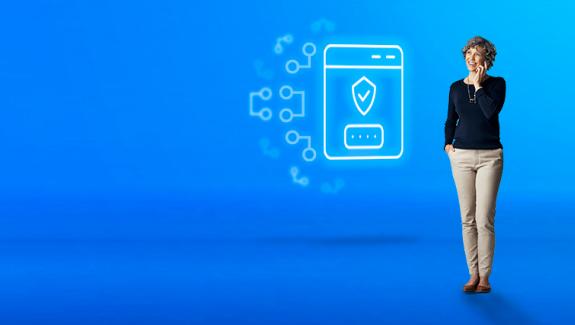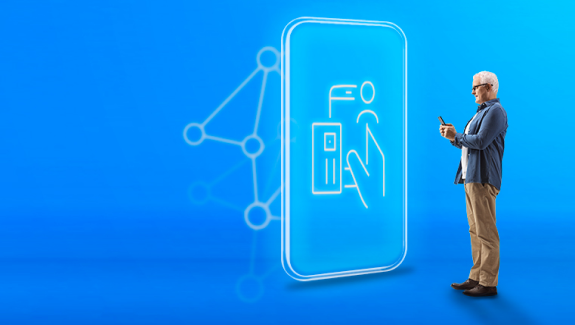
An artificial intelligence technique
Deepfake technology is an artificial intelligence technique that combines the words deep learning and fake.
Deepfakes are video, image or voice files processed using artificial intelligence software to make them seem authentic.

These are video, image or voice files processed using artificial intelligence to make them seem authentic.
Deepfakes pose a threat because they can be used to perpetrate sophisticated scams. For example, to simulate a video of a senior executive or CEO announcing fake news, or even to cause price swings in the stock market.
It is therefore crucial to stay informed, to be critical of the multimedia content we consume, and to learn to detect a possible deepfake.
How to detect a potential deepfake
Detecting a deepfake isn't easy, due to the sophisticated technology, but there are some signs that can give us a clue:
- Face and body: Deepfakes tend to focus on the face, so if the body seems disproportionate or poorly aligned, that's a red flag.
- Amount of blinking: Deepfakes often have problems replicating the natural blink of the eyes. In other words, if the person isn't blinking enough, this could be an indication that the video is fake.
- Facial and skin details: In deepfake videos, the edges of images can be fuzzy, the skin may seem too smooth or wrinkled, and facial expressions can be intermittent or unnatural.
- Validation of sources: If a video or any content comes from an unverified or unreliable source, you should question its legitimacy.
- Video length: Deepfakes tend to be short. So if a video is long, it's more likely to be legitimate.
- Deepfake detection software: For processes that require a more thorough verification, we can resort to deepfake detection solutions. It should be noted that no technological solution is going to fully guarantee if a video is legitimate or not.
It is important to remember that none of these signs is definitive by itself. The best defence against deepfakes is a combination of awareness and scepticism, common sense when faced with certain content and, above all, reviewing other sources, before accepting the messages being shown in the videos.
If you think you might be the victim of a scam, contact us as soon as possible
Call us on 93 887 25 25 or 900 40 40 90



